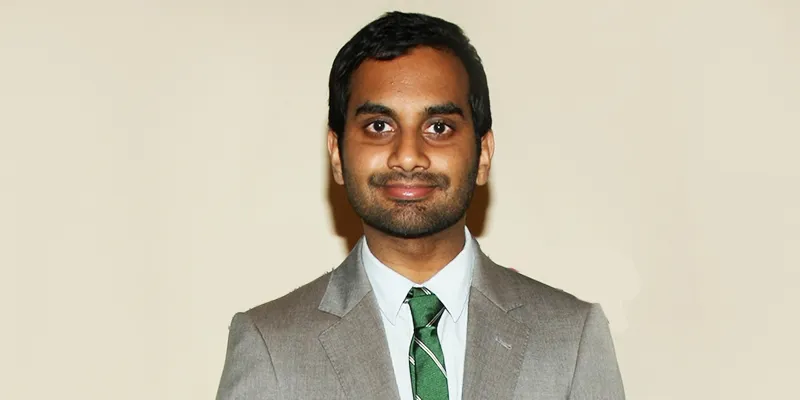Of comedy and casual racism: the life and times of Aziz Ansari
“I'm an optimist – I feel like an amazing part of life is that at any moment.”
A young man takes a sip of water with shaky hands, as he peers through the wings at the audience he is meant to impress. Going over his best one-liners for the millionth time, he thinks hopefully of the spotlight that is sure to blind him into oblivion the minute he walks onto stage. He even wonders whether he should take his mentor’s advice and imagine the audience naked. However, before he can complete this disturbingly hilarious thought, the emcee announces his name and it’s time. Too late to back out, he strides into an air of polite applause and begins.
Such is the life of a stand-up comedian. Taking on the responsibility to deliver jokes that will have people guffaw and spill their drinks heartily onto their shirts is no simple feat. It is a journey paved with potential onslaughts of rotten tomatoes, closed doors, and sporadic earnings.
However, the stage for these stand-up comedians is widening.
Look at India, itself. While groups like AIB and East India Comedy are still the ones to get the Bollywood-apprenticeship call, many other individuals are walking up to the spotlight, determined to have their audience rolling out in splits by the end of the session. Today, names like Kanan Gill, Biswa Kalyan Rath, Mallika Dua, and Radhika Vaz roll off the tongues of any Indian teen with access to YouTube. Their clever witticism coupled with their strong social media presence tickles all the right buttons.
However, delivering to a local audience that experiences the same urban culture is one thing. Being a brown man addressing a largely white audience, speaking about their country’s racism and still keeping it funny, is a game-changer by itself.
Born into a Tamil Muslim family from Tamil Nadu, Aziz Ansari spent his impressionable years in Columbia, South Carolina. With both parents working in medicine, Ansari initially intended to pursue a career in science or business. He enrolled himself in a marketing course at New York University’s Stern School of Business. However, he always found himself drawn more towards the impromptu comedy sessions that a few classmates and professors would often indulge in after classes.

Growing up, he was a huge fan Chris Rock. As he told Giant, “When I first started doing stand-up, he was the person I most wanted to be as a comedian, I know his HBO specials by heart.”
Soon enough, he sought to enter the industry, which at the time was still at a fairly nascent stage. After gaining his degree, he pulled some strings and landed a job as the host of a famous comedy night called ‘Human Giant’ at the UCB Theatre. This marked his turning point, and turning all the right heads, he went on to feature in popular series like Parks and Recreation and in films like 30 Minutes or Less. While he took on a series of roles – big and small – in various other sitcoms and movies, he also dedicated some time to co-authoring a book, Modern Romance, with sociologist Eric Klinenberg.
However, Ansari marked the charts by becoming the first South-Asian actor to be nominated for a leading role at the 2016 Emmys. His lead character, Dev Shah, in his own popular Netflix series, Master of None, was a huge hit with the viewers, who voted in his favour.
The story, modelled largely on Ansari himself, narrates the everyday struggles of being a coloured individual in New York and how, even in the subtlest ways, he faces the brunt of racial prejudice from even the most educated and ‘liberal’ of the white working class. A typical example of this is the infuriatingly exaggerated ‘Indianised’ accent that almost all Indians are expected to put in comedies – such as that of Raj from The Big Bang Theory. This issue is the highlight of one of the most powerful episodes of Ansari’s show, where Dev doesn’t get the acting job because he refuses to fake his accent.
Known to use the podium to address social issues through side-splitting references and hilarious innuendos, Ansari has received quite the following across the world, especially among the people of colour living in a largely white America.
Ansari recently made pop culture history by becoming the first South-Asian to host one of the world’s most popular shows, Saturday Night Live. Here too, Ansari took advantage of the show’s extensive reach to spread the message of the reality of casual racism and why it’s time people stood up against it. While his jokes are always tailored to leave people in splits, they always have just enough truth to inspire people to reflect on the norms, the least that we could do in today’s prejudice-engulfed times.







